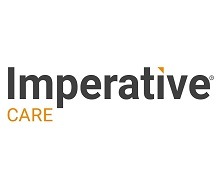 Imperative Care recently announced that new data evaluating the utility of its Zoom stroke solution were presented at the 16th congress of the World Federation of Interventional and Therapeutic Neuroradiology (WFITN 2022; 21–25 August, Kyoto, Japan).
Imperative Care recently announced that new data evaluating the utility of its Zoom stroke solution were presented at the 16th congress of the World Federation of Interventional and Therapeutic Neuroradiology (WFITN 2022; 21–25 August, Kyoto, Japan).
Results from an independent, single-centre, multi-operator experience evaluating the use of the Zoom stroke solution for the treatment of patients with middle cerebral artery (MCA) M2 occlusions were presented by Collin Torok (Midwest Radiology, Minneapolis-Saint Paul, USA).
“Distal vessel occlusions are considered the next frontier in mechanical thrombectomy for stroke treatment,” said Torok, lead author of the study. “The data from this study offer additional clinical evidence that aspiration thrombectomy using the Zoom stroke solution is both safe and effective for occlusions in the MCA M2 segment. Furthermore, Zoom 88 provides an excellent intracranial access catheter platform for distal occlusions. Even in the most tortuous cases, we have more than halved our procedural times with rapid initial and repeat passes to the distal circulation as needed.”
Endovascular approaches for distal occlusions can be more challenging and are associated with a higher risk of periprocedural complications as a result of a longer path to the occlusion and a smaller vessel diameter, an Imperative press release notes. As such, this single-centre study was undertaken to assess the safety and reperfusion success of aspiration thrombectomy in patients with these occlusions.
Results showed that Thrombolysis in cerebral infarction (TICI) 2b/3 reperfusion was achieved in 92.7% (38/41) of patients and TICI 2c/3 reperfusion was achieved in 63.4% (26/41) of patients. The median score on the National Institute of Health Stroke Scale (NIHSS) decreased significantly from 10.5 (interquartile range [IQR] 7 to 14.5) at arrival to 1.5 (IQR 0 to 6) at discharge (p< 0.001).
Median time from access to first aspiration attempt was 10 (6.6 to 16.5) minutes and median time from access to final reperfusion was 21.5 (16 to 31.8) minutes. There was one instance (2.4%) of symptomatic intracranial haemorrhage in this study cohort, and no perforations or other reperfusion catheter-related complications, the release states.
“More and more physicians are treating distal vessel occlusions despite their location in the brain—which can be more challenging to reach than other types of occlusions—resulting in a meaningful clinical impact,” said Imperative president and chief operating officer Daniel Davis. “We are pleased to see the results from this single-centre experience demonstrating the unique capabilities of the Zoom reperfusion catheters for the treatment of MCA M2 segment occlusions.
“The Zoom stroke solution is the only system that pairs an intracranial access catheter, Zoom 88, with a range of purposefully designed, vessel-matching reperfusion catheters, Zoom 35, 45, 55 and 71, and pump that can help reach these types of occlusions and enable fast and effective clot ingestion. We look forward to continued studies to evaluate mechanical thrombectomy in these vessels and further emphasise the clinical efficacy of our technology.”













